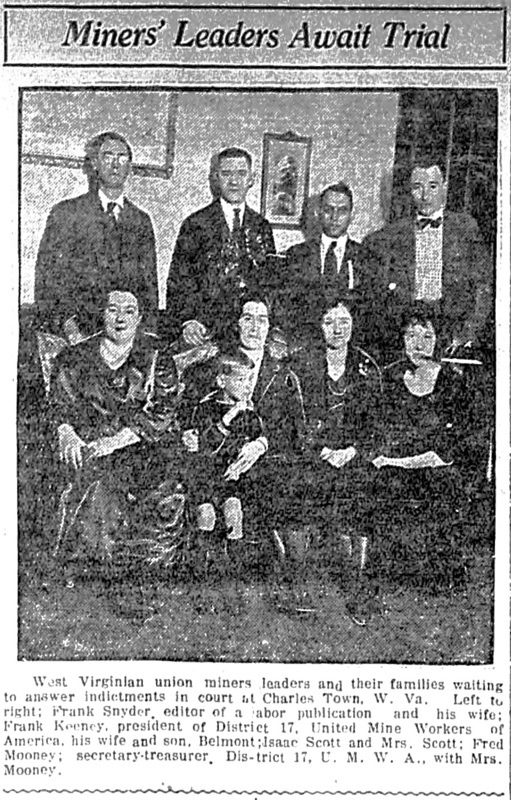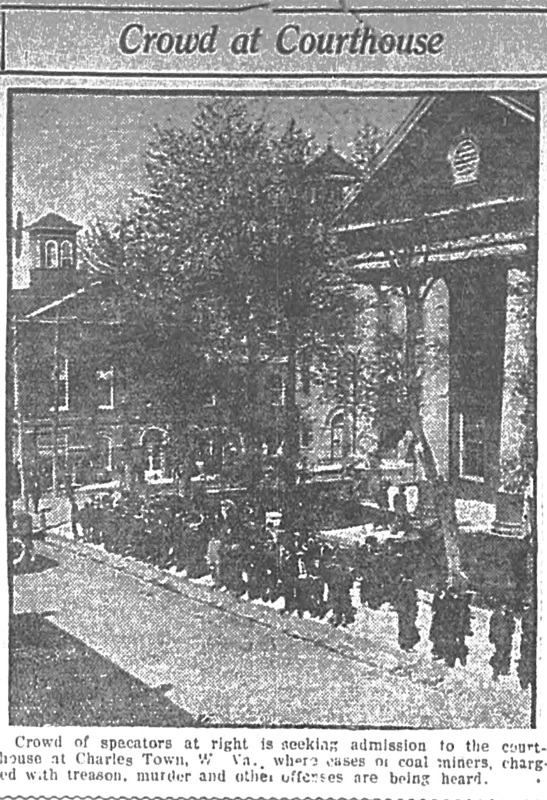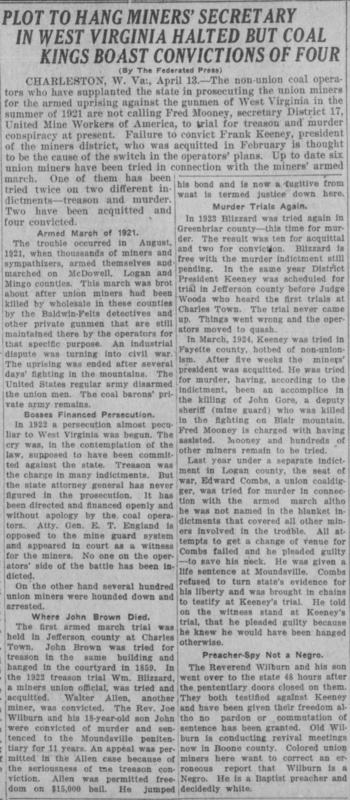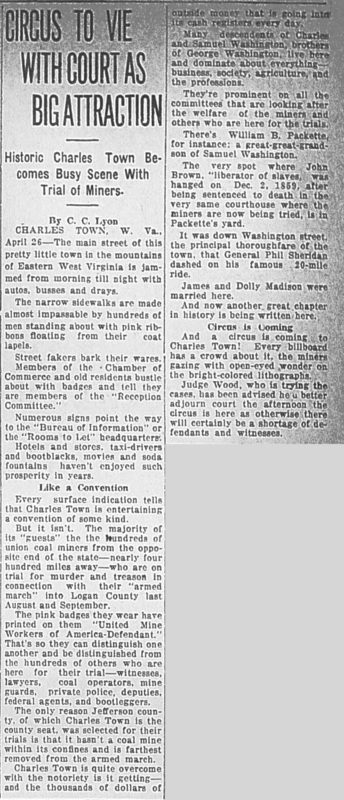Reports on Treason & Murder Trials
On August 30th, John E. Wilburn “organized a small armed company to support the miners. On the 31st, Wilburn's men shot and killed three of Chafin's deputies, including John Gore, the father of one of the men captured previously. During the skirmish, a deputy killed one of Wilburn's followers, Eli Kemp'' (West Virginia Archives and History, 2021). Those who participated in the mine wars were sent home if they surrendered to the troops, while those ‘assumed leaders’ were to be legally punished. According to West Virginia Archives and History, Pastor John E. Wilburn and his son were convicted for the murders of Logan County Deputies. However, they were pardoned by Governor Gore after serving three years of their eleven-year sentences (2021).
“Pastor John E. Wilburn”
The West Virginian newspaper article from April 28th of 1922 on John E. Wilburn’s experience with the local government and law is representative of the extent to which the government went to maintain a pro-industry and anti-union narrative in the public eye. This article portrays the authorities and government in a negative light rather than the miners, who were often painted as criminals. In contrast to other news articles on the murder trials, this one shows how those involved in the mine wars were treated by authorities.
Other Trials
Frank Keeney, United Mine Workers of America (UMWA) president and Fred Mooney, UMWA treasurer, urged miners to participate in labor strikes and mine wars. Bill Blizzard also actively motivated miners to march and was present during the mine wars. Due to their active involvement, Keeney, Mooney, and Blizzard were assumed mine war leaders and were convicted for treason and murder. Their court trials were well-known throughout the state, and many people would stand outside of the courthouse waiting for news on the hearings. News reports and photos describe hundreds of coal miners waiting outside of the courthouse with red and pink badges to indicate their association with the union while on trial themselves or in support of those being convicted.
After numerous court trials, the charges against Keeney, Blizzard, and Mooney were dropped (West Virginia Archives and History, 2021). Newspapers updated the public on the treason and murder trials. Some would discuss Blizzard's trial hearing in connection to Wilburn's trial signifying similar treatment by the law enforcement and the state.
“Blair Mountain stands as a powerful symbol for workers to this day. The miners who participated vowed never to discuss the details of the march to protect themselves from the authorities. For many years, the story of the march was communicated by word of mouth as an inspiration to union activists. It serves as a vivid reminder of the deadly violence so often associated with labor-management disputes.” (West Virginia Archives and History, 2021).





